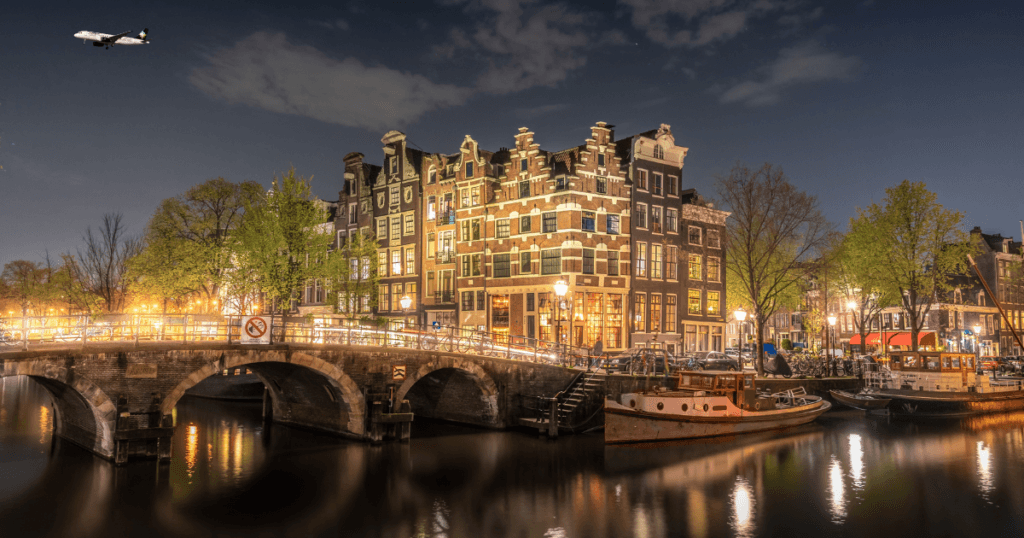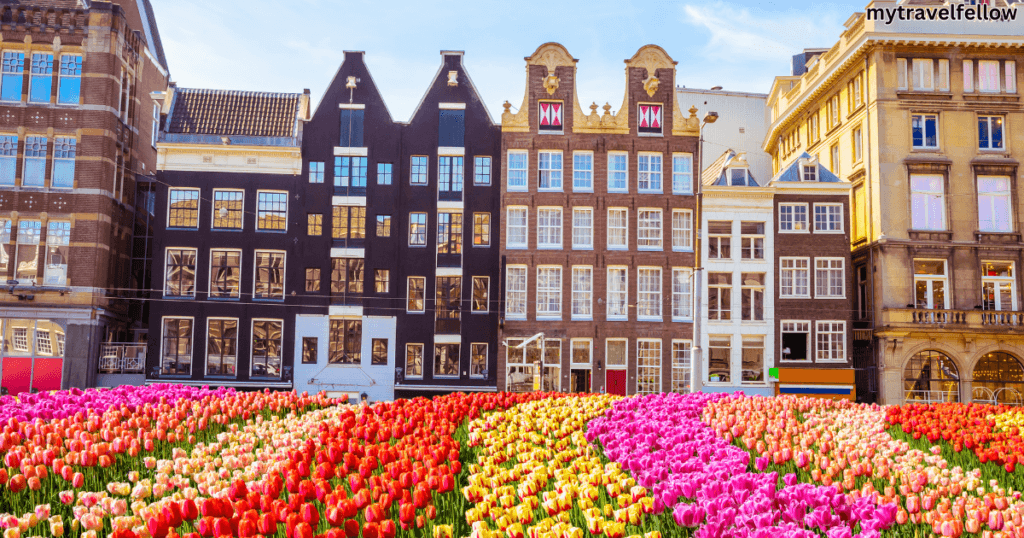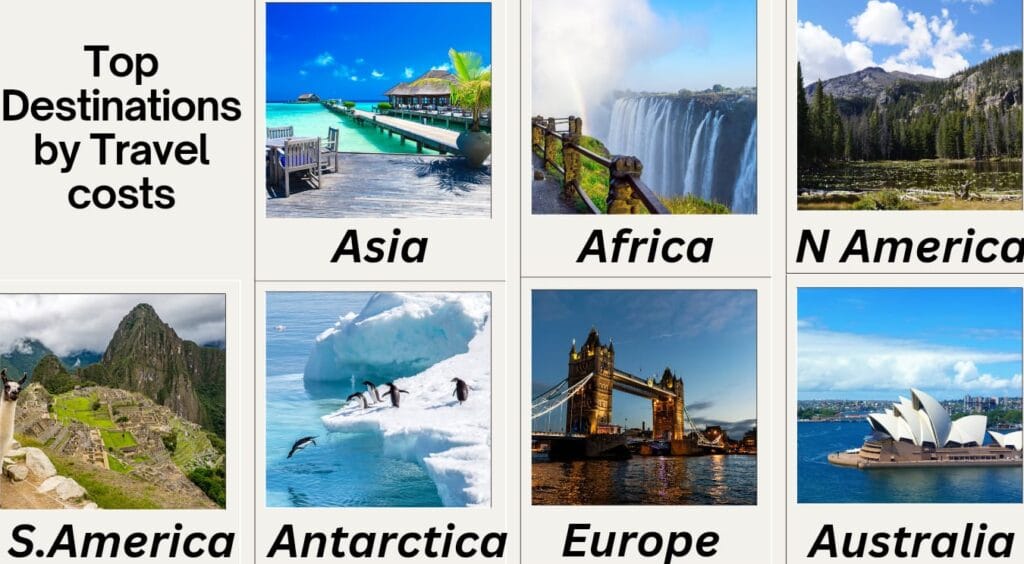Amsterdam is a captivating destination with a blend of old-world charm and modern attractions. Known for its iconic canals, vibrant neighborhoods, and rich cultural heritage, this city has something for everyone. To make your trip seamless and memorable, here are 10 must-know tips before setting off to explore Amsterdam!
1. Reserve Tickets for Top Attractions Early
Amsterdam is home to world-renowned attractions like the Anne Frank House, Rijksmuseum, and Van Gogh Museum, each drawing large crowds year-round. To avoid long waits and potential disappointment, it’s wise to book your tickets online weeks in advance. The Anne Frank House, for instance, releases tickets only online and they sell out quickly, especially during peak tourist seasons. Booking ahead not only secures your spot but also helps you plan a smoother itinerary, giving you more time to explore the rest of the city.
| Attraction | Recommended Advance Booking Time | Why Book Early? |
|---|---|---|
| Anne Frank House | 1–2 months | Tickets are only available online and often sell out quickly. Booking early ensures you can choose your preferred time slot, especially during peak seasons. |
| Rijksmuseum | 2–3 weeks | The museum offers popular exhibits and attracts large crowds, especially in the summer months. Booking early allows you to avoid long lines and makes planning easier. |
| Van Gogh Museum | 2 weeks | With timed entry tickets, booking in advance ensures you secure your spot, as it can get crowded during peak times and major exhibitions. |
| Vondelpark | No need for booking | This iconic park is free to access, so no booking is required. However, it’s best to visit early in the day to avoid larger crowds. |
| Rijksmuseum Gardens | No need for booking | Open to the public year-round, no booking is required. Visiting in the early morning or late afternoon helps avoid crowds, especially during the summer. |
| Hermitage Amsterdam | 2 weeks | This museum hosts rotating exhibitions, and the smaller space can become crowded. Booking ahead helps guarantee entry to your preferred exhibition slot. |
| NEMO Science Museum | 1–2 weeks | Although tickets can be purchased on-site, booking early during peak tourist seasons (such as school holidays or summer) can save time and ensure entry. |
| Heineken Experience | 1–2 weeks | While tickets can be purchased at the door, booking in advance ensures you can choose a time that works with your schedule, especially on weekends and busy holidays. |
| Amsterdam Canal Cruise | 1–2 weeks | Canal cruises are one of the top tourist activities, and booking in advance ensures a spot on your preferred boat, particularly during high season or special tours. |
| Artis Zoo | 1–2 weeks | With a wide range of animals and exhibits, the zoo can get busy. Booking tickets ahead of time secures your entry and saves time upon arrival. |
2. Rent a Bike, But Follow Local Cycling Rules
Cycling is more than a mode of transportation in Amsterdam—it’s a way of life. With an extensive network of bike paths, the city is one of the most bike-friendly in the world. Renting a bike is a great way to see the sights and feel like a local. However, Amsterdam’s bike lanes can be busy, and there are unspoken rules that all cyclists are expected to follow. Stick to bike lanes, signal when turning, and avoid pedestrian-only areas to ensure a safe ride. Respecting these rules will keep you safe and help you navigate the city like a pro.
3. Learn a Few Basic Dutch Phrases
Most Dutch people speak excellent English, but learning a few Dutch phrases can add a personal touch to your interactions and show respect for the local culture. Simple greetings like “Hallo” (hello), “Dank je wel” (thank you), or “Hoe gaat het?” (how are you?) can help you connect with locals and enhance your travel experience. Additionally, trying to speak the language, even if just a few words, is often appreciated and can lead to friendly conversations and helpful recommendations.
| Dutch Phrase | Translation | When to Use |
|---|---|---|
| Hallo | Hello | Use this as a friendly greeting when meeting someone or entering shops or cafes. |
| Dank je wel | Thank you | A polite way to show gratitude, whether someone helps you or provides service. It’s important to use this often! |
| Hoe gaat het? | How are you? | A casual greeting when meeting locals, perfect for asking how someone is doing. |
| Alsjeblieft | Please | Used when making requests or when handing something to someone. It’s the polite way to ask for something. |
| Spreekt u Engels? | Do you speak English? | A helpful question to ask when you need assistance and aren’t sure if the person speaks English. It shows respect. |
| Waar is de wc? | Where is the bathroom? | Very useful to know when you’re in public spaces or restaurants and need to locate restrooms. |
| Hoeveel kost dit? | How much is this? | Essential for shopping or dining. Use this when you’re checking the price of something, whether it’s at a market or store. |
| Wat raadt u aan? | What do you recommend? | A great phrase to use when visiting a restaurant or shop to ask for local recommendations. |
| Ik begrijp het niet | I don’t understand | Perfect for situations when you’re unsure about something, such as instructions, signs, or conversations in Dutch. |
| Tot ziens | Goodbye | A polite way to say goodbye, commonly used when leaving shops, cafes, or after a friendly encounter with locals. |

4. Choose the Right Season for Your Visit
Amsterdam’s charm changes with each season, so consider what kind of experience you want. Spring, especially April, is famous for its blooming tulips, filling fields and parks with vibrant colors. Summer offers warm weather, longer days, and outdoor festivals but tends to be crowded. Fall, with its cozy atmosphere and colorful foliage, is perfect for a laid-back visit. Winter has a festive spirit, with holiday lights adorning the canals, but it’s generally quieter, colder, and has shorter days. Each season has its pros and cons, so choose the one that best aligns with your travel style.
| Season | Average Temperature | Perks | Drawbacks |
|---|---|---|---|
| Spring (Mar–May) | 10–15°C | Blooming tulips | Occasional rain |
| Summer (Jun–Aug) | 17–23°C | Festivals, warm weather | Larger crowds |
| Fall (Sep–Nov) | 10–15°C | Beautiful fall colors | Rainier days |
| Winter (Dec–Feb) | 3–8°C | Quiet and cozy | Cold temperatures |
Explore Amsterdam’s Highlights with the I Amsterdam City Card
The I Amsterdam Card is a convenient way to experience the city’s highlights while saving money on tickets and public transport. With this pass, you get free access to many popular museums, unlimited rides on the city’s trams, buses, and metro, and even canal cruises. It’s perfect if you plan to visit multiple attractions in a short period, as the savings add up quickly. The card is available in various durations, from 24 to 96 hours, allowing you to choose the best fit for your stay.
6. Explore Unique Neighborhoods Beyond the Center
While the historic center is packed with famous landmarks, there’s so much more to see outside it. Amsterdam’s neighborhoods have unique vibes and hidden gems worth exploring. The Jordaan district, with its narrow streets, cozy cafes, and art galleries, is a favorite among locals and tourists alike. De Pijp is known for its multicultural atmosphere, lively Albert Cuyp Market, and diverse dining options. Noord, accessible by a free ferry, boasts striking modern architecture, hip cafes, and the iconic A’DAM Lookout with panoramic city views.
7. Familiarize Yourself with Coffee Shop Etiquette
Amsterdam’s coffee shops, where cannabis is legally sold, are an iconic part of the city’s culture. If you decide to visit, make sure to follow local etiquette. Approach the experience responsibly—ask the staff for guidance, especially if it’s your first time, and start with smaller quantities. Note that coffee shops are not the same as cafes (which serve coffee and food), so make sure you’re clear on the type of establishment you’re visiting to avoid any confusion.
8. Prepare for Rainy Weather
Amsterdam’s weather can be quite unpredictable, with sudden rain showers common throughout the year. Even in summer, it’s wise to carry a small, portable umbrella or a lightweight rain jacket in your bag. Many locals simply embrace the rain and continue with their day, so if you’re well-prepared, you won’t let a little drizzle stop you. Some hotels provide umbrellas for guests, so don’t hesitate to check with your accommodation if you find yourself unprepared.
9. Respect the Red Light District
The Red Light District is one of Amsterdam’s most famous areas, drawing visitors curious about its unique nightlife. However, it’s essential to respect the area and follow the rules in place. Photography of the workers or the area itself is strictly forbidden, and taking photos without permission is considered very disrespectful. Be mindful that this is also a residential neighborhood with people who live and work there, so keep noise to a minimum and stay respectful of the community.
10. Get Travel Insurance for Added Security
While mishaps are the last thing anyone wants to consider on vacation, having travel insurance offers valuable peace of mind.. Amsterdam is a safe city, but accidents, health issues, or unexpected cancellations can happen. Insurance covers medical emergencies, lost belongings, and other unforeseen circumstances, so you can travel with added security. European healthcare can be costly for non-EU visitors, making insurance a practical investment that ensures you’re protected in case of any disruptions.



